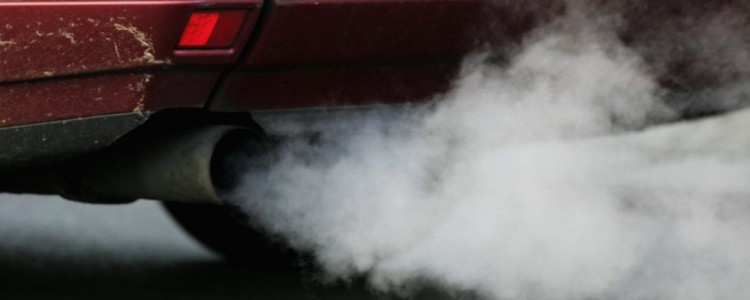 Image copyright Getty Images
Image copyright Getty Images “Clean air zones” targeting drivers of high-polluting vehicles should be extended to more cities in England, the Commons environment committee has said.
MPs said more cities should get the enhanced powers being granted to London, Leeds, Birmingham, Nottingham, Derby and Southampton.
The powers allow cities to charge high-polluting vehicles to discourage them from entering the city centre.
The committee said tackling air quality was a priority.
The Department for the Environment, Food and Rural Affairs last year outlined the plans to introduce five clean air zones by 2020, after a Supreme Court ruling ordered it to comply with European Union law limits on nitrogen dioxide in the air. These five are in addition to the existing one in the capital.
The proposed clean air zones will only affect older – mainly diesel – buses, lorries, coaches and taxis, but will not apply to private cars.
Separately, London’s mayor has announced that a “ultra low emission zone” being introduced in the centre of the capital from 2020 will apply to all vehicles, including private cars.
All six cities currently granted the enhanced powers were found to have the highest levels of nitrogen dioxide.
The government said the zones would both reduce pollution in city centres and encourage the replacement of older vehicles with higher emissions.
‘Greater flexibility’
The report from the Environment, Food and Rural Affairs Committee said emissions had been declining significantly but there were 40-50,000 early deaths each year in the UK because of cardiac, respiratory and other diseases linked to air pollution.
Committee chairman Neil Parish, the Conservative MP for Tiverton and Honiton, said: “Only five cities… will have new powers to charge polluting vehicles to enter new clean air zones.
“Councils in the dozens of other English cities currently exceeding EU pollution limits must also be given the option of using such powers if their communities support action.”
The current plans for the zones, added the report, imposed a “one size fits all” model.
It said local authorities must be given “greater flexibility in order that they can tailor measures to best meet their local circumstances.
“For example, cities may find it more effective to limit vehicle access at certain times of day or to target specific bus routes rather than adopt blanket access proposals.”
Analysis
 Image copyright PA
Image copyright PA By Roger Harrabin, BBC environment analyst
This report joins a growing body of challenge to government air pollution policy.
People are outraged by car firms cheating emissions tests. Parents are fed up of hearing their children are breathing harmful air. Campaigners are angry that ministers have tried to water down laws designed to protect public health.
And diesel drivers are annoyed at being blamed for running cars that government encouraged them to buy in the first place.
It took 400 years to clean up the capital’s air from coal smoke, according to a new book – London Fog – by Christine Corton.
The government is being pressed to act faster to solve nitrogen pollution in all the UK’s cities.
Follow Roger on Twitter
The committee also suggested:
- The government ensure marketing claims made by vehicle manufacturers were “fully accurate”, following the scandal surrounding the falsifying of emissions by Volkswagen
- A scrappage scheme to provide owners of diesel cars that are more than 10 years old with discounts on ultra-low emission vehicles
- Defra investigate if it could provide incentives to the agricultural sector to reduce its contribution to air pollution
Air pollution has caught public attention by the scandal of car makers cheating emissions tests – and by successful court cases brought against the government under European law by the group ClientEarth.
Its spokesman Alan Andrews said a decision was due in weeks on further legal action on the adequacy of the government’s plan to solve the problem.
He welcomed the MPs’ report but told BBC News there was a further problem: “I can’t understand why the MPs are willing to get even tougher on drivers whilst merely advising farmers how to reduce the ammonia coming off their manure heaps.
“The pollution from farms drifts across cities and harms people’s health – there’s been barely any reduction in it for a decade, so it’s incredible that the farm lobby has managed to wriggle out of legislation.”
‘Secretive’ group
The MPs’ report says a cross-government approach is needed and calls for more action from the inter-departmental ministerial Clean Growth Group chaired by Oliver Letwin. The MPs say this group has no timetable, no minutes and needs to be less secretive.
A Defra spokesman said: “Tackling air quality is a priority for this government and our plans set out how we will achieve this through continued investment in clean technologies and by encouraging the uptake of low emission vehicles.
“Cities already have powers to introduce Clean Air Zones, and other air quality schemes, and our plans will require five cities to implement these zones…
“Later this year we will also consult on a clean air zone framework that will give local authorities the flexibility to make decisions about their own areas while ensuring a co-ordinated approach across the UK.”







